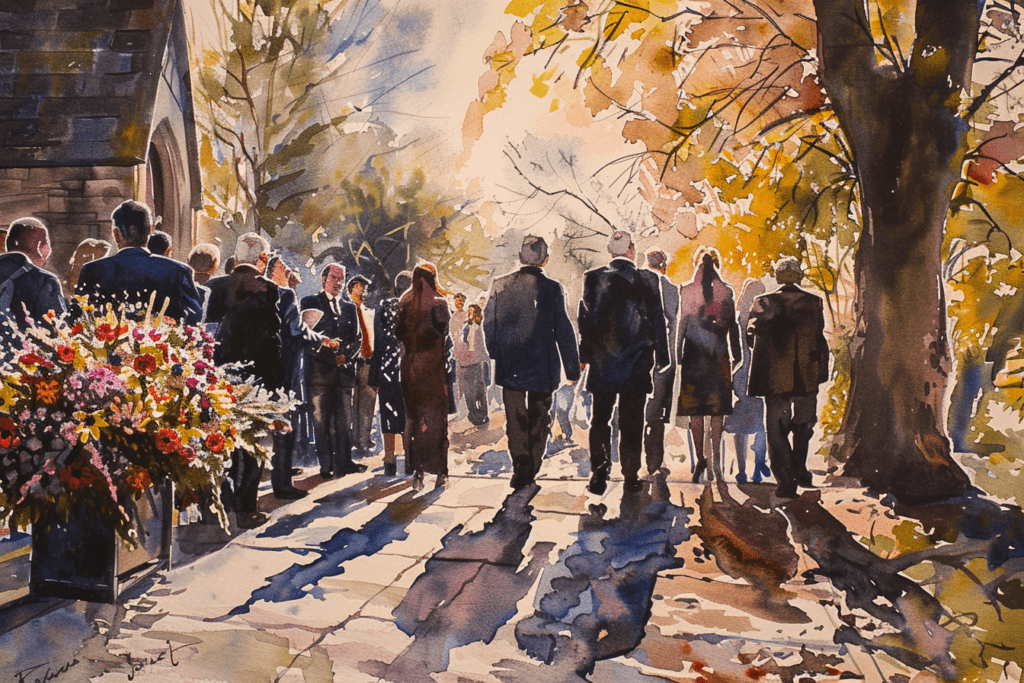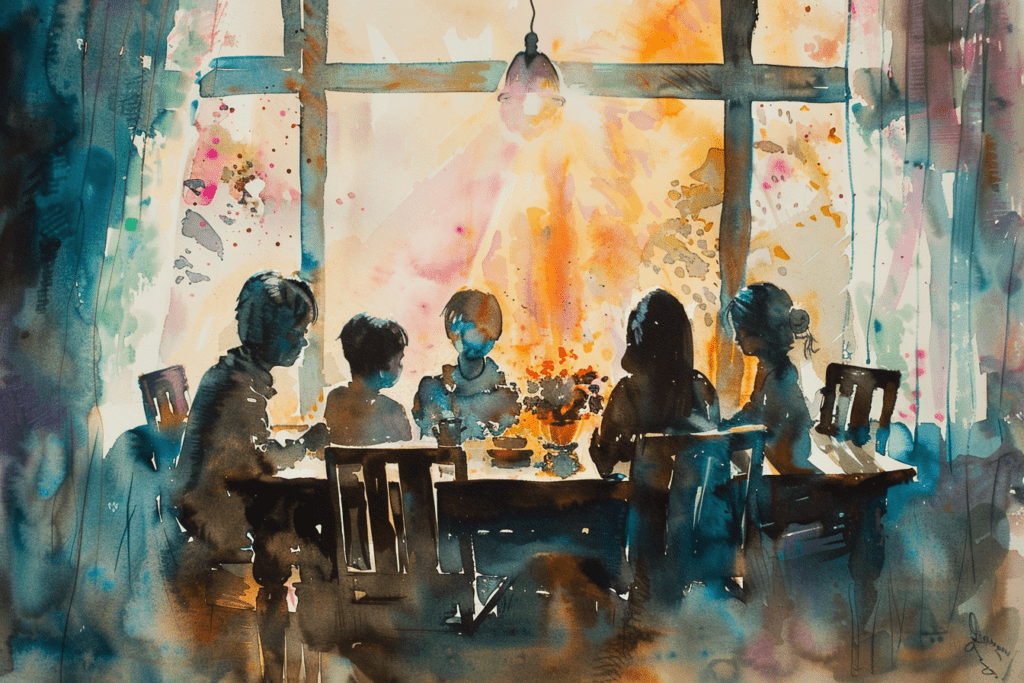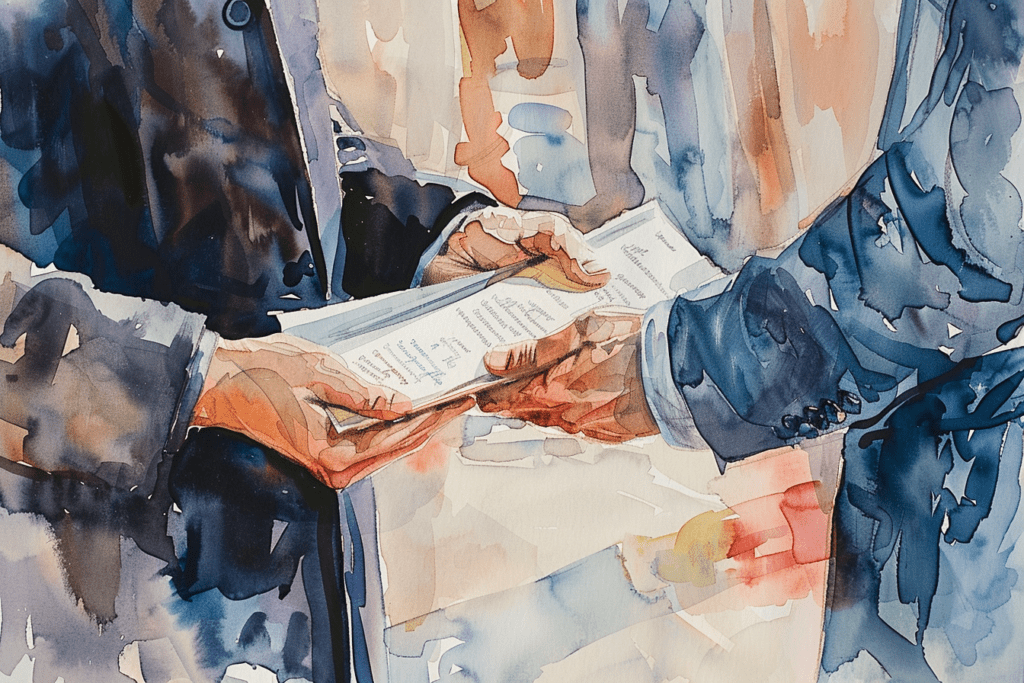
The Importance of Funeral Attendance Cards: What You Need to Know



Introduction

Losing a loved one is an emotionally overwhelming experience. During such times, small gestures can provide immense comfort and support.
One such gesture is the use of funeral attendance cards. These cards not only help in managing the attendance but also offer a meaningful way to express condolences and support to the grieving family.
In this article, we explore the significance of funeral attendance cards, their benefits, and how they can be used effectively to honour the memory of the deceased.
Article Contents
- Understanding Funeral Attendance Cards
- Benefits of Funeral Attendance Cards
- How to Use Funeral Attendance Cards
- Personalising Funeral Attendance Cards
- Examples of Messages on Funeral Attendance Cards
- Incorporating Technology
- Conclusion

Understanding Funeral Attendance Cards

Funeral attendance cards, also known as memory cards or memorial attendance cards, serve as a record of those who attended the funeral service.
These cards are typically distributed at the entrance of the service, allowing attendees to fill in their names and any personal messages or memories they wish to share.
Why They Matter
Funeral attendance cards play a crucial role in the grieving process. They provide a tangible reminder of the support system surrounding the bereaved family.
Knowing that people took the time to attend the service and share their condolences can be a great comfort during a time of profound loss.
A Keepsake for the Bereaved
For many families, funeral attendance cards become cherished keepsakes. They serve as a physical reminder of the love and support received during a difficult time.
These cards often contain heartfelt messages and memories that can be revisited in the future, offering solace and reminding the family of the deceased’s impact on others.

Benefits of Funeral Attendance Cards

Personal Connection
Funeral attendance cards allow attendees to express their feelings and memories in a personal and meaningful way.
This connection can be a source of great comfort to the bereaved, helping them feel supported and less alone in their grief.
Practical Record Keeping
Keeping track of who attended the funeral can be challenging, especially when the bereaved are overwhelmed with emotions.
Attendance cards offer a practical solution, providing a clear record of attendees, which can be referenced later for thank you notes or memorial acknowledgements.
Aiding in the Grieving Process
Writing and reading messages on attendance cards can be therapeutic. It allows both the attendees and the bereaved to process their emotions and share their grief.
For many, the act of writing down thoughts and memories can be a crucial step in the healing process.

How to Use Funeral Attendance Cards

Distribution and Collection
Funeral attendance cards should be easily accessible to all attendees. Typically, they are placed on a table near the entrance of the service venue, along with pens and a box or basket for collecting the completed cards.
Having a designated person to guide attendees and manage the cards can also be helpful.
Encouraging Participation
Encouraging guests to fill out the cards can sometimes require a gentle prompt.
Announcements made before or during the service can remind attendees of the importance of these cards and how they provide comfort to the grieving family.
Design and Content
The design of funeral attendance cards should reflect the tone of the service and the personality of the deceased. Simple, elegant designs are often preferred.
The content typically includes spaces for the attendee’s name, address, and a personal message. Some cards may also include a short poem, prayer, or a quote that held significance to the deceased.

Personalising Funeral Attendance Cards

Incorporating Memories
Adding a section for attendees to share a special memory or anecdote about the deceased can make the cards even more meaningful.
These shared memories often become treasured parts of the grieving process, highlighting the positive impact the deceased had on others.
Photographs and Symbols
Including a photograph of the deceased or symbols that were important to them can personalise the cards further.
Whether it’s an image of the person in their happiest moments or symbols like flowers, religious icons, or hobbies, these elements can evoke fond memories and provide additional comfort.
Themes and Colours
Choosing a theme or colour scheme that reflects the deceased’s personality or favourite colours can make the cards feel more personal.
This attention to detail shows the bereaved family that their loved one’s unique essence is honoured and remembered.

Examples of Messages on Funeral Attendance Cards

Finding the right words to write on a funeral attendance card can be challenging. Here are some examples that can help attendees express their condolences and support:
- “I am deeply sorry for your loss. [Name] was a wonderful person, and I feel honoured to have known them.”
- “May you find peace and comfort in the memories you shared with [Name]. My thoughts are with you.”
- “Sending you strength and love during this difficult time. [Name] will always be remembered.”
- “My heart goes out to you and your family. [Name]’s legacy of kindness will live on in all of us.”
These messages, while brief, can provide immense comfort and convey heartfelt sympathy.

Incorporating Technology

Digital Attendance Cards
In today’s digital age, many funerals are attended virtually. Digital attendance cards can be a useful alternative for those unable to attend in person.
These can be distributed via email or through a dedicated funeral website, allowing attendees to fill in their details and messages online.
Creating a Virtual Memory Book
Collecting all digital and physical attendance cards and compiling them into a virtual memory book can be a beautiful way to preserve the messages and memories.
This book can be shared with family members and friends, providing an ongoing source of comfort and remembrance.
For more ideas on incorporating technology into your funeral stationery please see our article – Incorporating Technology In A Funeral Order Of Service Booklet.

Conclusion

Funeral attendance cards play a vital role in the grieving process, offering a practical and emotional means of support for the bereaved.
They serve as lasting reminders of the love and solidarity shown by friends and family during a difficult time. By understanding their importance and knowing how to use them effectively, we can ensure that our gestures of sympathy and remembrance provide the comfort and solace that are so needed in times of loss.
In remembering and honouring the deceased through these cards, we help to keep their memory alive in the hearts of those they touched.







